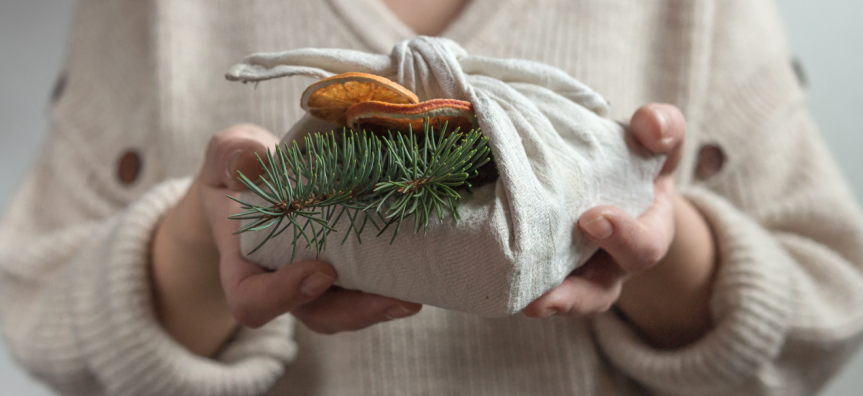As the countdown to Christmas begins, let’s make sure the season of joy doesn’t leave a mountain of waste in its wake.
Embrace these simple sustainability tips while spreading cheer to both loved ones and the planet.
Get creative with decorations
Instead of tinsel and plastic baubles why not use beautiful native flowers such as poinsettia. Other green alternatives include pinecones, cinnamon sticks and homemade biscuits. Popcorn garlands are also a fun way to decorate and a great activity for kids. You can also learn how to make your own pom pom garlands from used yarn. And where possible use second-hand decorations, rather than buying new.
Eco-friendly wrapping tips
According to CSIRO1 Australians use more than 150,000km of wrapping paper during the festive season. That’s nearly enough paper to wrap around Earth’s equator four times! That’s a lot of trees!
Instead, be creative with your Christmas wrapping and use fabric scraps, re-use paper or gift bags, or use brown paper with colourful ribbons (source from bargain bins) and decorate with a flower or a piece of rosemary.
Recycling your packaging
Received a gift packaged in polystyrene? Don’t let it go to landfill. If it’s 100% clean, white and dry, take it to one of our Polystyrene Drop-off Collection Days on 11 January or 23 March 2025, 8am - 4pm at Kimbriki for recycling. Cardboard boxes can be taken to our cardboard walk-in collection day at Dee Why Children’s Centre on 29 December, 8am – 12noon.
Dealing with unwanted gifts
Sadly, more than six million Australians expect to receive presents they will not use, with the bulk of these unwanted gifts destined for landfill. According to the Australia Institute this Christmas waste represents a value of $921 million.2
If you happen to receive a gift that you are unlikely to use, consider donating it to the Sydney Library of Things - Northern Beaches.
Alternatively, instead of buying a physical gift, why not buy friends or family a membership to the Library of Things giving them access to items that they can borrow all year round.
Reference: 1CSIRO
Reference: 2Australia Institute

